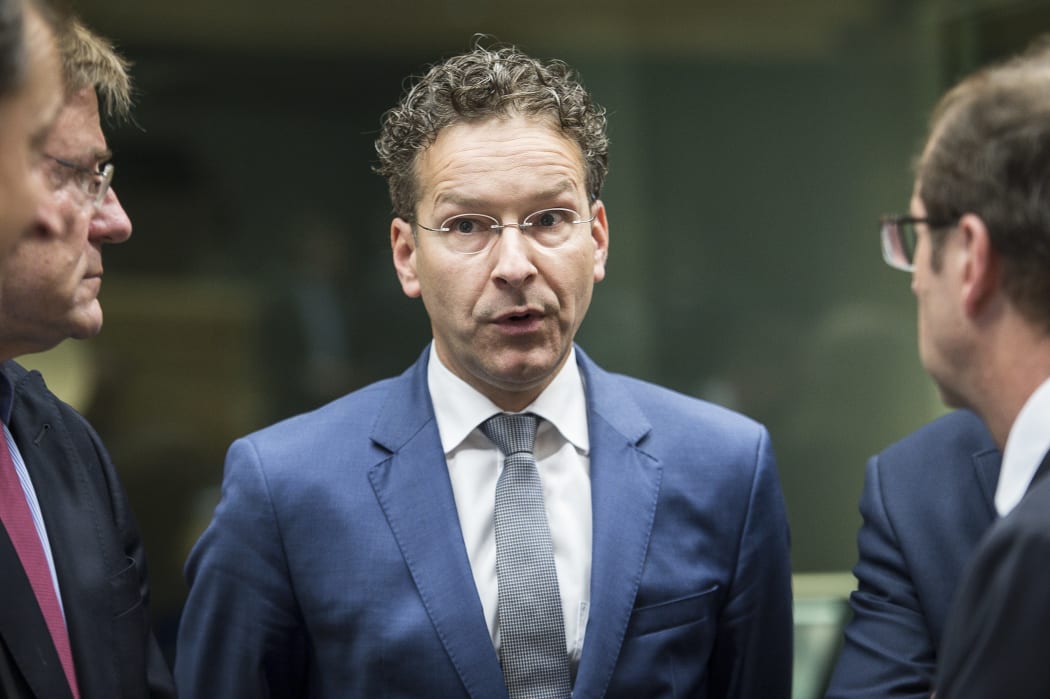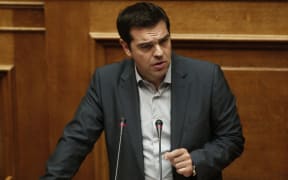A summit of all European Union members planned for Sunday has been cancelled as "very difficult" talks over a third bailout deal for Greece continue.

Eurogroup chief Jeroen Dijsselbloem Photo: AFP
Eurozone finance ministers adjourned the talks last night and they have now resumed.
European Council president Donald Tusk said a meeting of Eurogroup leaders would go ahead at 14:00GMT and "last until we conclude talks on Greece".
Without a deal, it is feared Greece could crash out of the euro.
The BBC's Jonny Dymond in Brussels says that rarely have EU meetings been cancelled at such short notice and with such a terse announcement.
Marathon talks on Saturday had ended without agreement and Eurogroup leader Jeroen Dijsselbloem described negotiations as "very difficult".
"We have had an in-depth discussion of the Greek proposals, the issue of credibility and trust was discussed and also of course financial issues involved, but we haven't concluded our discussions," Mr Dijsselbloem, who heads the Eurogroup of finance ministers, told reporters.
"It is still very difficult but work is in progress."
Talks resumed at 09:00 GMT.
European Commission Vice President Valdis Dombrovskis said it was "utterly unlikely" a mandate would be achieved in Sunday's meeting to start formal negotiations on the third bailout.
Slovakian Finance Minister Peter Kazimir was similarly downbeat, saying: "It's not possible to reach a deal today. We can agree on certain recommendations for the heads of state. That's all. The breach of trust... it's so big, it's not possible to achieve the deal."
Finnish Finance Minister Alexander Stubb said he was "still hopeful" of a deal but that on a scale of one to 10, Greece and its eurozone partners were "somewhere between three and four" on achieving a deal.
Reports on Saturday suggested that German ministers were drawing up a plan that would allow Greece to exit the eurozone temporarily if this weekend's talks fail - something Athens says it is not aware of.
Dimitrios Papadimoulis, vice-president of the European Parliament and a member of Greece's ruling Syriza party, reacted angrily to the eurozone's approach in the talks so far.
"What is at play here is an attempt to humiliate Greece and Greeks, or to overthrow the [Alexis] Tsipras government," he said.
The measures submitted in the latest Greek document include:
- tax rise on shipping companies
- unifying VAT rates at standard 23 percent, including restaurants and catering
- phasing out solidarity grant for pensioners by 2019
- scrapping 30 percent tax break for wealthiest islands
€300m defence spending cuts by 2016
privatisation of ports and sell-off of remaining shares in telecoms giant OTE
Referendum
Greece is asking creditors for €53.5bn to cover its debts until 2018.
However, the amount of the new bailout could reach €74bn as Greece seeks a restructuring of its massive debt, which it says is unsustainable.
Of the €74bn, €58bn could come from the EU's bailout fund, the European Stability Mechanism, with €16bn from the IMF, sources have said.
The Greek government this week set out a new list of austerity measures to try to secure the bailout - many of which had been rejected by the Greek people in a referendum last Sunday.
Greek Finance Minister Euclid Tsakalotos is attending the talks in Brussels, trying to convince his counterparts that his government can be trusted to push through its economic reform plan.
- BBC




